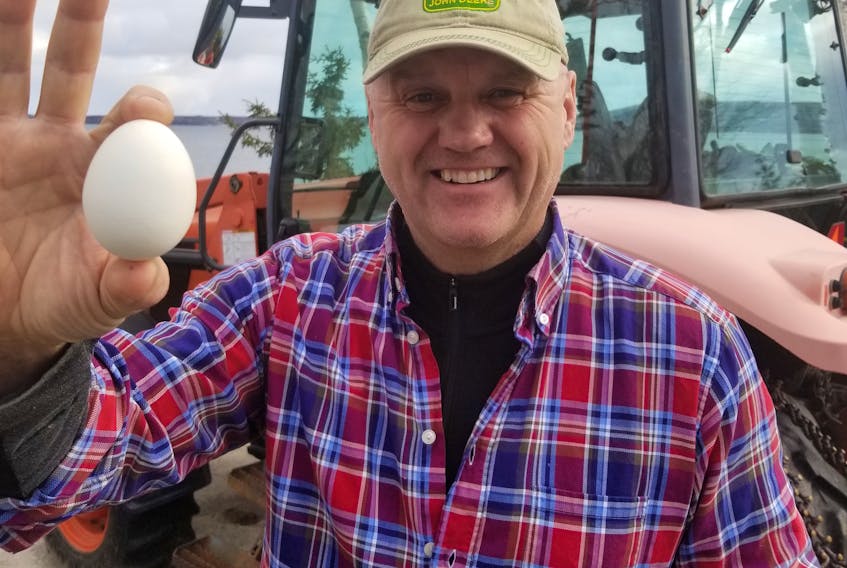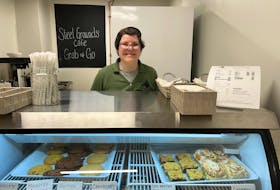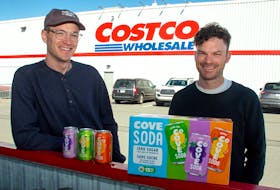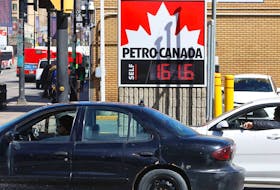Basically, supply management is about managing the supply of a product to meet the need or demand. Its goal is to regulate the price and supply of a product to prevent or limit market volatility or inconsistency in supply. With supply management, the price of products changes along with inflation or production costs such as labour, feed and energy costs. This means that we as consumers do not fall prey to the flooding of or market shortages that can happen when we have unregulated domestic or foreign supply. Supply management for some agricultural products was put into place approximately 50 years ago in Canada.
So let’s talk food. Let’s talk eggs as an example, since I am an egg farmer.
Canada produces its own eggs for the table market. Farmers work with a national organization called the Egg Farmers of Canada (EFC). Through this organization, the egg price is regulated and farmers are given a quota. This means farmers are allotted a specific number of chickens intended to produce the number of eggs required for the market place and the retailer (grocery stores) are given a suggested price to sell the eggs. This whole process ensures 1. that we are meeting the need for eggs for our population in Canada, 2. that prices are fair for the consumer, 3. that farmers and retailers get a fair return for their effort and investment and most importantly, 4. that food safety and animal welfare standards are strictly monitored and constantly upgraded to ensure a safe food supply. Food imported from other countries may or may not meet those standards set out by our own Canadian Food Inspection Agency.
There are four food products in Canada that are under supply management: eggs, milk, chicken, and turkey. Supply management for these basic foods in Canada means that we have control over our own supply and quality as well as the price of these products. Speaking of eggs, they are a relatively inexpensive basic healthy food source produced throughout communities all over Canada by our own farmers. The money stays in our communities and the production of this food is not isolated to a specific region of Canada. Therefore this food needn’t travel far to get to the retailer and ultimately to the kitchen table. Supply management means that we are not relying on imported products, therefore we are not susceptible to price volatility and substandard or lacking food safety protocols.
So why is this Canadian approach important? Supply management is often under threat. Free trade agreements like the TPP, Bilateral agreements with the U.S., and others often put our supply management approach to food security in jeopardy. Generally, we assume or are told that consumers want to pay the lowest price and the retailer wants the cheapest product. So what happens when we have a situation like the current pandemic? When our food supply is threatened and we can no longer “count on” the unregulated free market where the cheapest food is the most important consideration? When we look at what is happening now with the COVID-19 crisis, there is a big demand for eggs. Currently, in the United States where there is no supply management structure, the price for eggs has more than tripled in one month for the consumer. In Canada, we are seeing an increased demand for eggs but thanks to supply management we are not seeing this huge increase in price for a basic food staple that is used by most Canadian households.
I think it is important that we understand how and why supply management works, why it has become part of our economic picture and how it benefits communities and Canadian citizens. These concepts and approaches become much more relevant in times of crisis and it might be a good time for us to really understand how they work. It is important that we have a consistent, safe food supply. Supply management in Canada has enabled us to ensure that.
So have an egg or two any time of day with a glass of milk and know you are safe to do so...all the while supporting your community.
Chris Eyking is co-owner of Eyking Farms in Millville.









